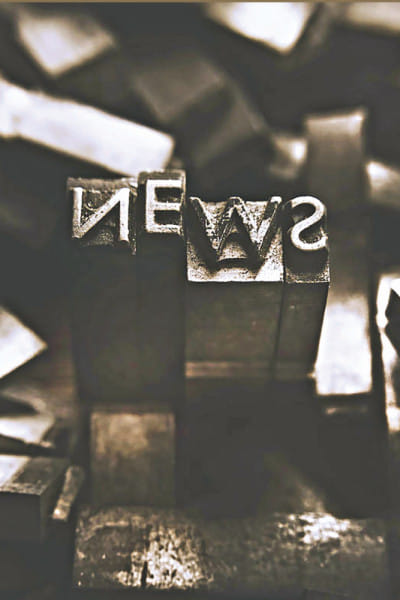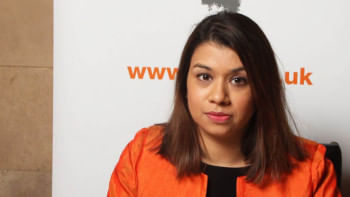Selfies of old school media

The first time I reported professionally was in 1973 covering the DUCSU elections. I was excited, but I nearly got whacked when two political activists mistook me for an activist—long beard, long hair, long chador etc.—and chased me. I just kept moving as they shouted, “What are you doing here when others are gone?”
I managed to reach the Arts building gate area and found a friend on that side. “Leave now before they get you,” he said kindly. I did. It wasn’t much of a report but I had survived my first scare. And filed my first report.
46 years later, I am still filing reports and still scared. Some things change, some don’t in Bangladesh media.
Of Anwar, Endeavour and The Daily Star
I was very interested in literary magazines but was also keen on current affairs. So I kept getting asked to write pieces. In 1974, I joined late Anwar ul Haque’s English magazine Endeavour, probably the first of its kind in Bangladesh. Awfully printed on abysmal quality newsprint, it carried quality stuff. Many writers who are still seen on mastheads today wrote for it. Many have passed on like Anwar himself and the Endeavour magazine.
We were colleagues briefly in The Daily Star between 2000 and 2002, along with another class friend, the late Fahim Munaim Tipu. It’s interesting how both were great journalists but also sought extra media assignments in which they did well. Once in 2001 after a change in political power, rumours were circulated by a mischievous lot of young reporters that I was getting posted abroad. Both my friends congratulated me. When I saw that they were serious, I laughed and said that it was a joke circulated for pure entertainment to compensate for the bad lunch we all would eat.
I am old school. I think journalists should, as a matter of principle, never be involved in anything other than journalism. And certainly not activism and that is why I hold a diminished opinion of journalists who get close to political parties. Something is lost and that’s usually the bias-free fingers that type out the report or column. It’s better to have integrity than proximity to the powerful.
Of anonymous crackers and barricades
In the 1993 to 1994 phase, I was doing the streets as a daily reporter for the BBC. It was a hardcore street beat and occasionally dangerous. In those days before instant news on TV or online, radio was king. That reporting day was of a street protest which turned violent. We were at the barricades near the Pir Yemeni market at zero point, waiting.
I asked the AL leaders in the procession—late Abdus Samad Azad and Md Nasim—if they planned to breach the barbed wired police barricades. They said no such plan existed. But we waited, as usual hopeful something worth reporting might happen.
Suddenly, a couple of crackers from nowhere exploded on the walls of the market leaving deep yellow scars on it. Suddenly the crowd surged, the police moved, and stones began to fly.
Nasim bhai himself was hit, bleeding from a head wound. Suddenly, everything went out of control, the push on the barricades mounted, and crackers went off everywhere. The michil, now very militant, breached the police cordon and tear shelling and lathi charge began.
Guns, bombs and the innocent dead
We tried to look for safety but there was none and so came out amidst smoke and stones. Near the AL office, a small crowd was huddled around a young man who sat in shock, his leg blown up by a cocktail bomb, jagged white bones sticking out of the flesh. I asked a policeman to take him to a hospital. He was angry. “Our people have been injured and will be taken first.” The injured man had come to Dhaka from Domar the night before, had slept in the market, unaware of everything going on was loitering around and got hit.
Suddenly, Nadeem Qadir of AFP said that trouble had broken out near the Fulbaria station and that we should go there. Several of us got into a press auto and reached the place. Before we knew what was going on, gunshot sounds came through. Everyone ran for shelter. We squatted down near a drain and tried to see from where the gunshots were coming. I was holding on to a stranger’s shoulders as I craned my neck to get a better look. I saw several young men on a roof nearby emptying their shotguns. The stranger was trembling so bad I looked at him. He was a very scared policeman.
Half an hour later, a policeman came and told me, they had taken the injured man to the DMC.
Ataus Samad bhai, my senior, told me that we must crosscheck casualty figures with each other as our station was the same. He went off to the hospital and I, after a stop at the Press Club, where life seemed so removed and safe, to pick up any extra news, went home.
My broadcast dispatch time was 6.30. Samad bhai called at 4pm and said he was reporting two dead, same as mine. Half an hour later he called again. “Make it three, one more confirmed. “
The young man with the shattered leg didn’t make it.
Old school media ethics
That’s how I reported and that’s how it was played. I hadn’t seen the police fire. I hadn’t seen the protesters fire. I had no idea who the men on the roof were. I didn’t guess. It’s not my job to do so. I said they were not in police uniform but reported guns had been used. I mentioned bombs, stone, injured and blamed none.
It became a major breakthrough report as most papers carried our story as their headline. The BBC’s credibility grew too.
I also earned the respect of the police and the politicians, even the ruling party, because they could depend on this journalist who didn’t support anyone. After all these years, I am still old school. It’s not the journalists’ job to change society or strengthen democracy. He has only one job, report facts.
There is no such thing as activist or patriotic journalism. They are excuses for partisan politics disguised as media work. But let them be. After 46 years in the media, let me fade away as a journalist who stood by facts, not sides.
Old media’s new future
Years back, in the late ‘70s, I was with the weekly Sunday Star just as the hot metal era was ending and computer composing was coming in. Most never saw it coming but it came with many layoffs in the compose section. The nature of media changed as composing did. At The Daily Star in the 2000s, our pieces would land at the compose section via e-mail before heading to the editor’s table. Today, the compose sections are almost all gone. Times are a-changing.
Print media faces a long coma, or even death, but the media as a whole is facing a transition. Unless one runs with time, one is left behind. Many have adjusted and a mixed media has emerged, call it online or digital. Call it reality, call it new, it is what is flourishing today.
The future lives in a digital house not in one made of stones and newsprint. If one lives in a ramshackle building, dangers live next door. Old fashioned media was about values and content not form. No soldier survives without moving. It’s in shifting and grabbing new opportunities that victory lies.
Full speed ahead to the future.
Afsan Chowdhury is Bangladeshi liberation war researcher, columnist, and jouenalist.

 For all latest news, follow The Daily Star's Google News channel.
For all latest news, follow The Daily Star's Google News channel. 



Comments